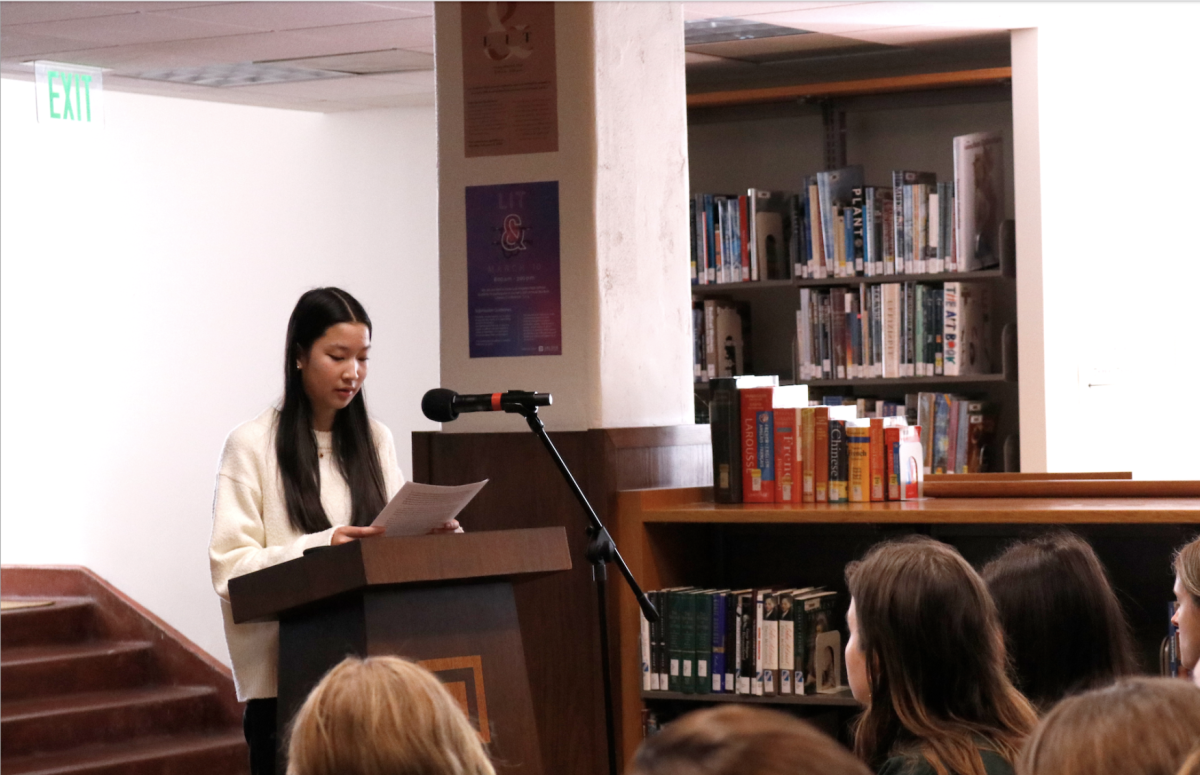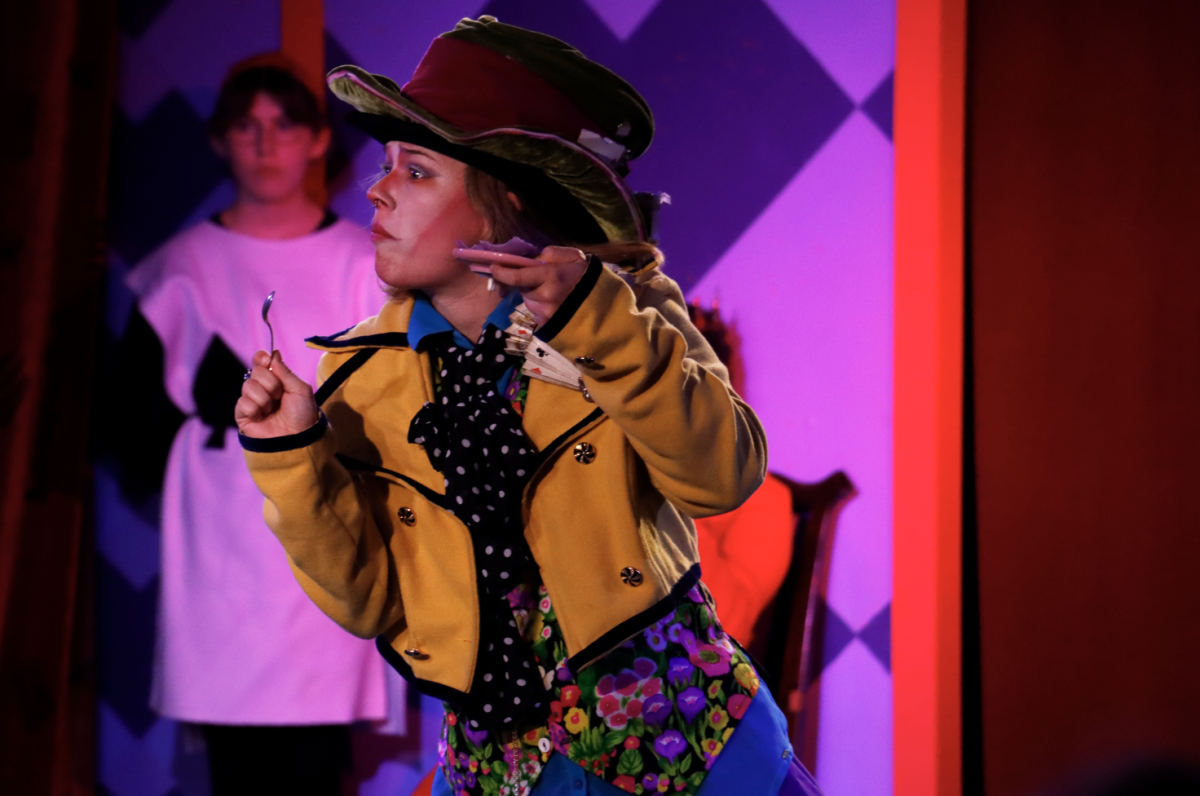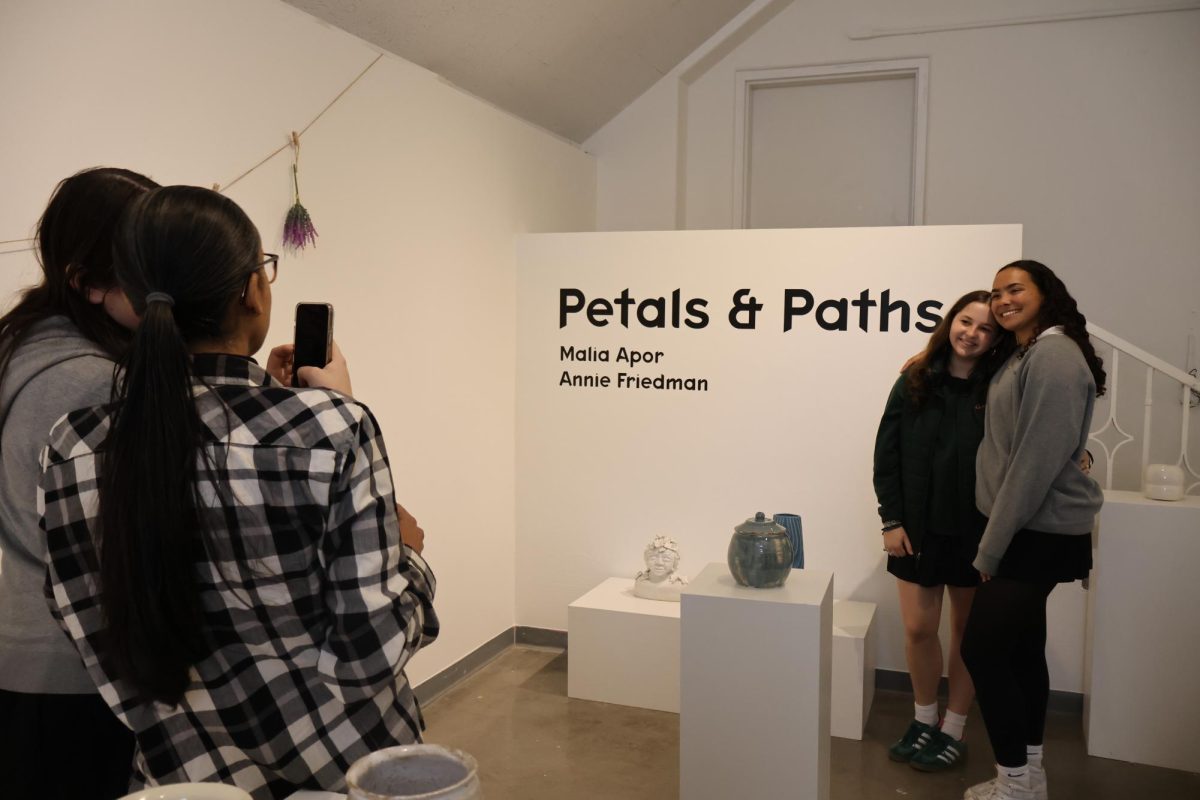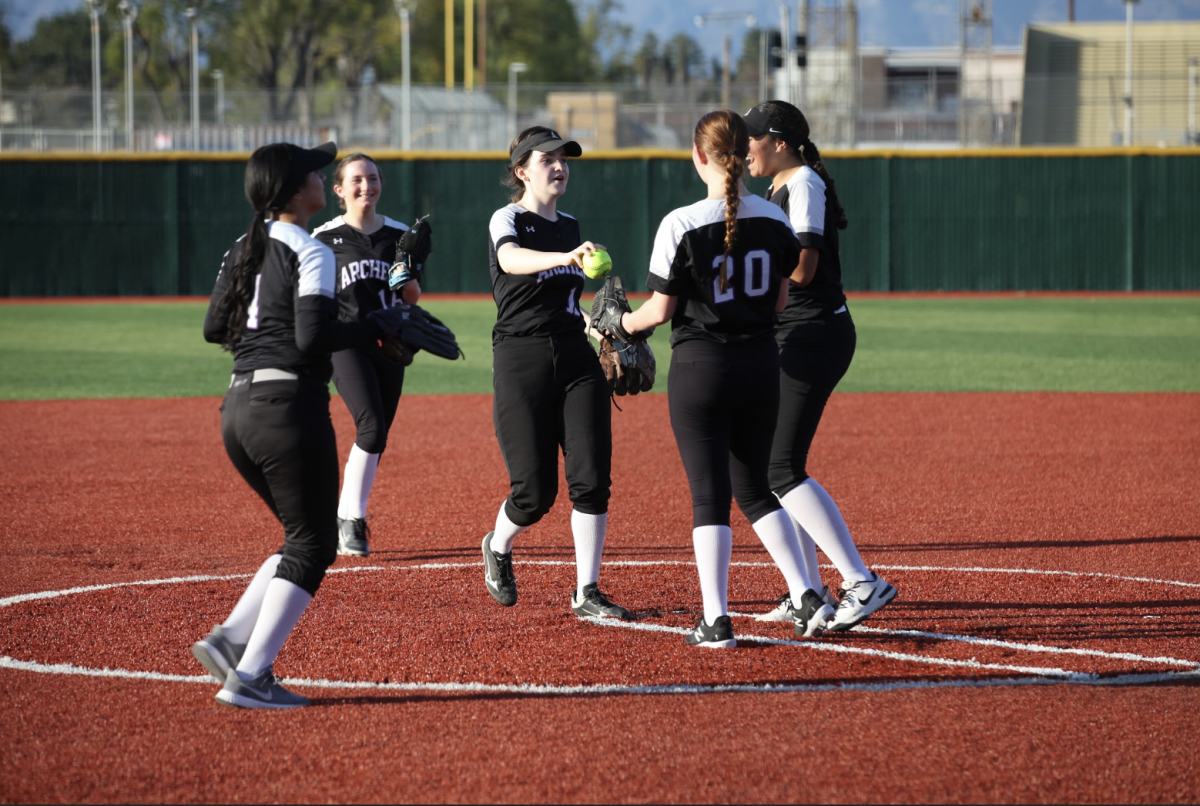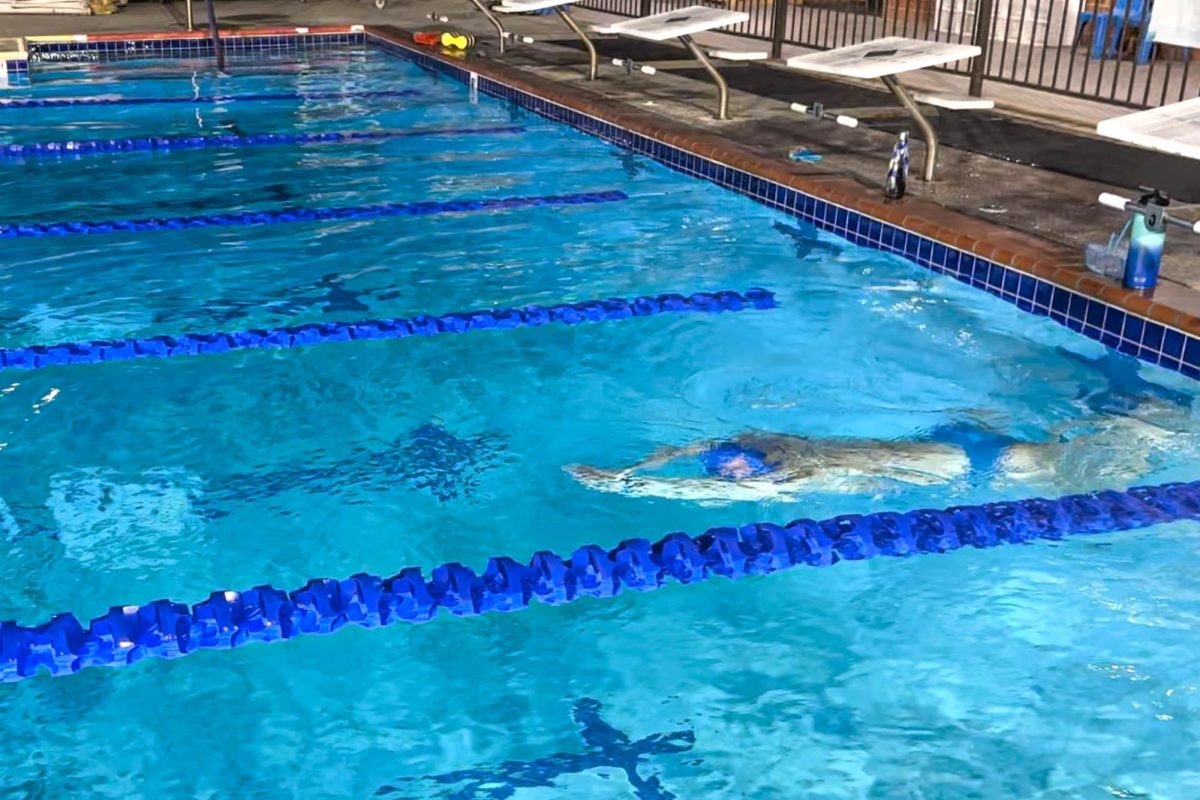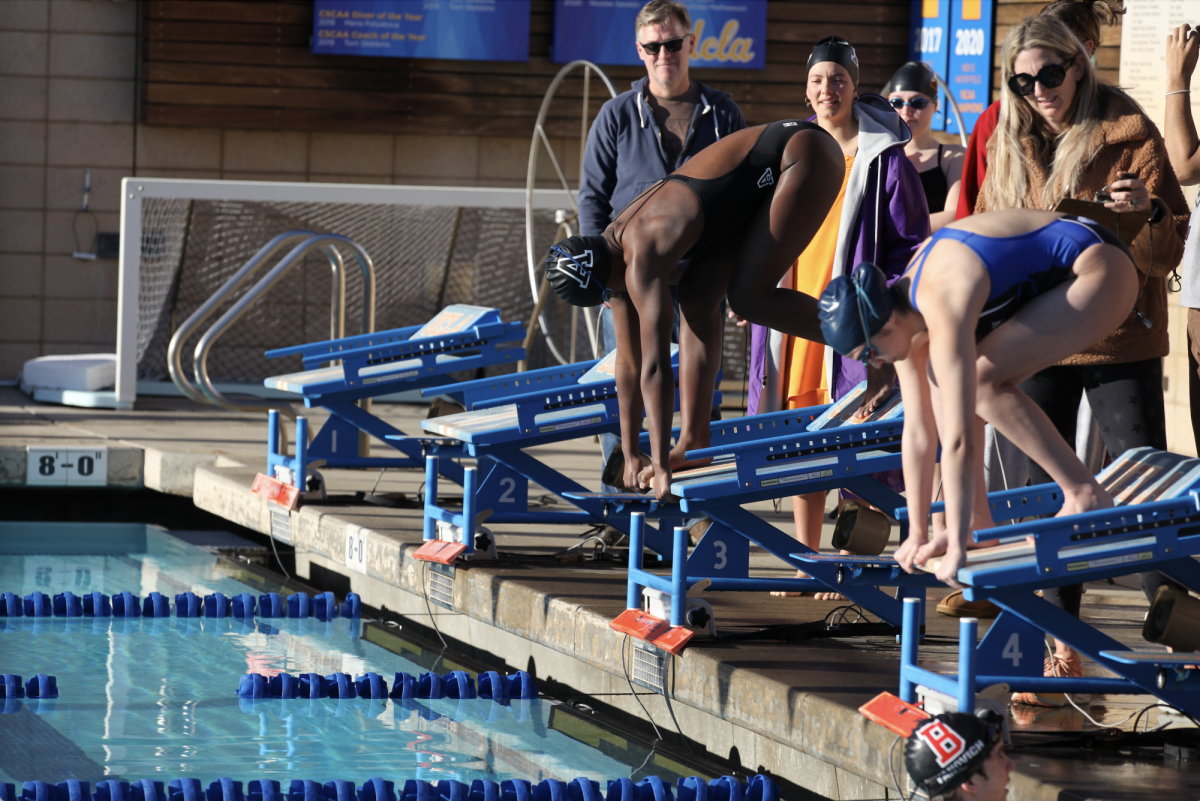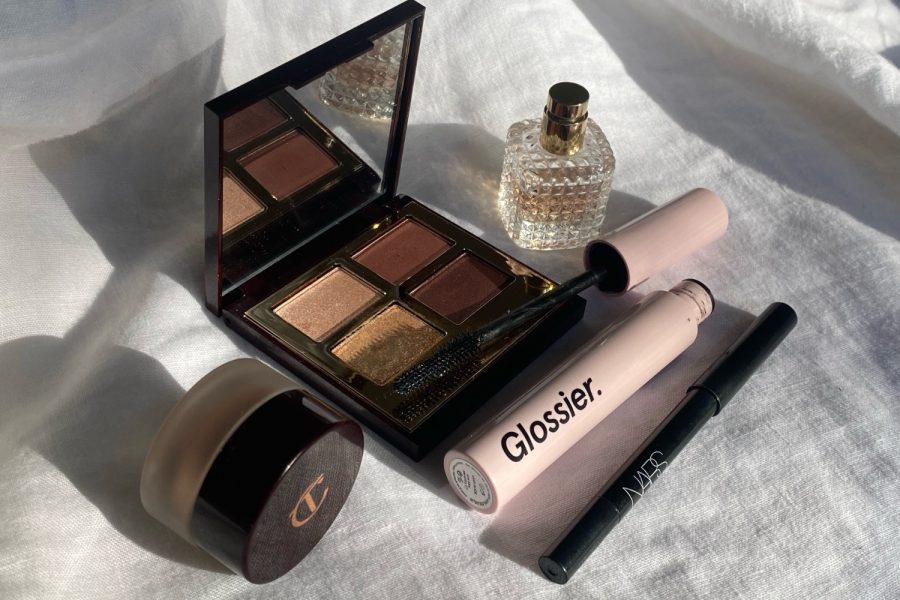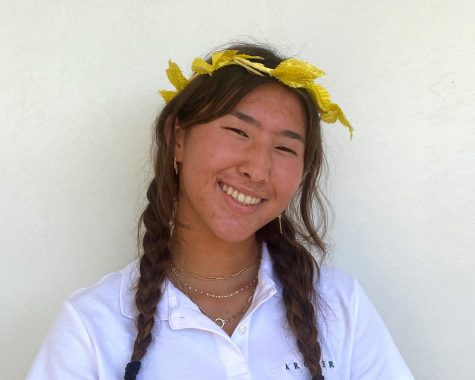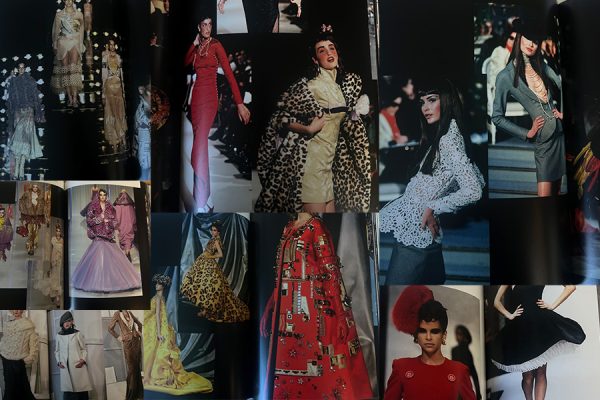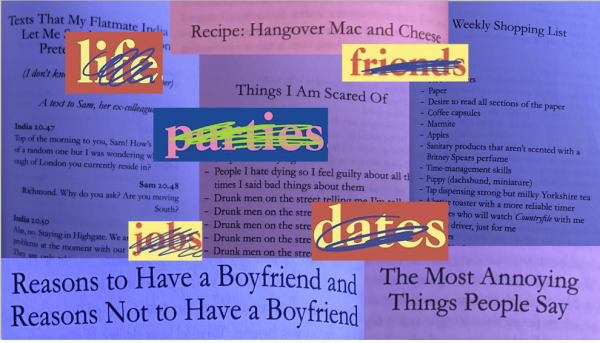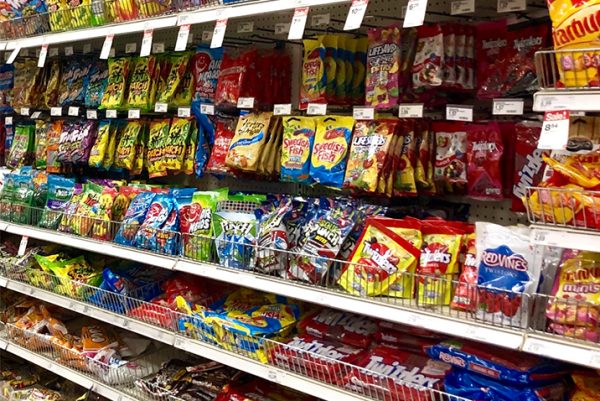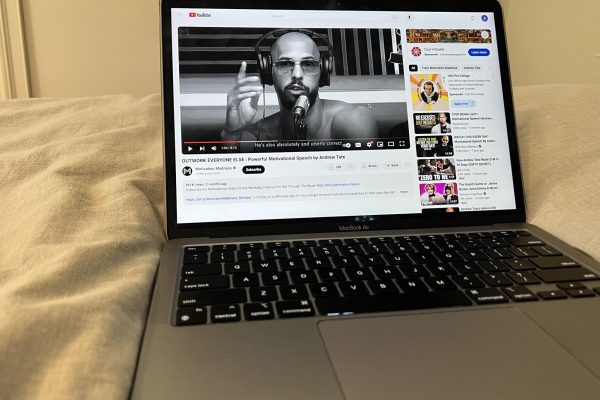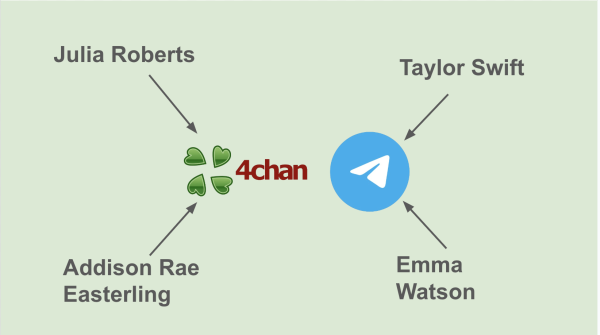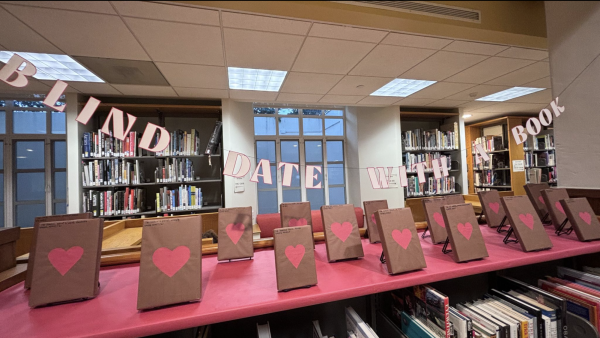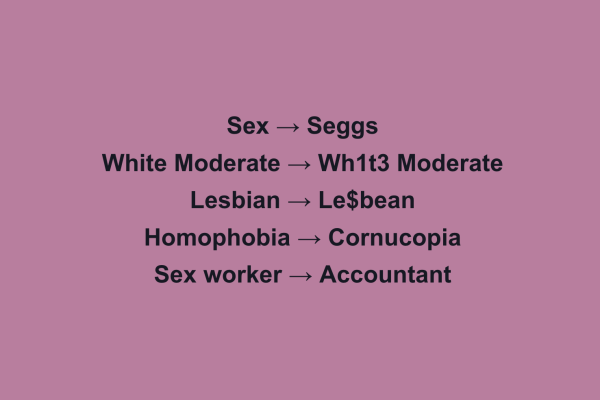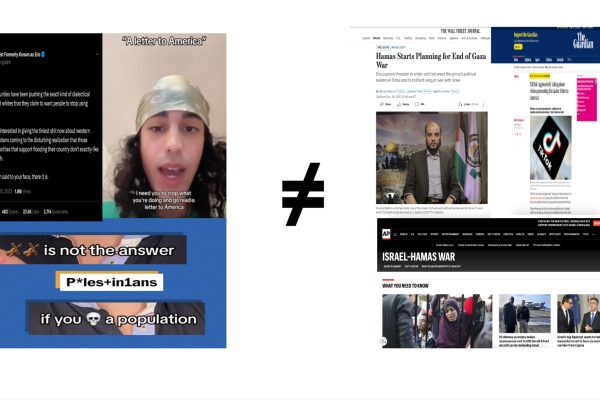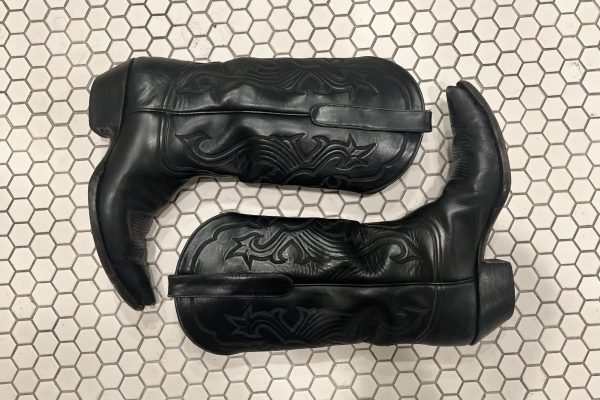Column: A TikTok trend or blatant racism?
Photo credit: Isabelle Verdery
Various makeup products like eyeliner and eye shadow lie on a white sheet; products people use to participate in the popular “fox-eye” trend. The trend has taken the internet by storm—and not in a good way. People continue to romanticize having slanted eyes, although this only seems to apply to non-Asians.
April 1, 2022
Dear social media users,
Our eyes are not a trend.
The term “Asian-fishing” is best described as when a non-Asian person tries to pass as East Asian, especially through the use of makeup or edited photos. In her article, “The rise of orientalism,” Jasmine Harris wrote it “is not a question of whether winged eyeliner is now off-limits or of gate-keeping Asian fashion styles, but of non-East Asians intentionally altering the way they look for their own aesthetic purposes.”
The so-called “fox-eye” trend gained its popularity through TikTok trends and the influence of non-Asian models like Kendall Jenner and Bella Hadid. A combination of eyeliner, eyeshadow and false lashes are applied in order to achieve an almond eye shape. People even go as far as to shave off the tails of their eyebrows and elongate the inner corners of their eyes to create this slanted shape. The trend could be viewed as just extreme eyeliner at first glance, but it is when people combine it with things such as the “migraine pose” that Asian features are being fetishized and exploited.
Asian beauty standards are heavily influenced by the male gaze. Fashinnovation highlights this by saying Asian women are expected to be “submissive, young, skinny, pale and … easy to be controlled.” Historically, Asian women have been fighting to break this sexist perception and rewrite the narrative, so when people “Asian-fish” online, they are completely disregarding everything Asian women are working to change.
In addition, it’s no secret that slanted eyes have been one of the most common insults used against Asian people. But, what started out as a simple TikTok trend has devolved into overt racism against women of Asian descent. When people participate in these trends, they diminish the many experiences of Asian women who have been bullied and ridiculed for their natural eye shape. I find this incredibly ironic. When did it become okay for white models to blatantly appropriate my eye shape, and why are they praised for it?
Why is it beautiful on them, but not me?
Personally, I have struggled for years to find influencers on social media who look like me. I remember trying to follow makeup tutorials when I was younger and feeling so frustrated because I could not figure out how to do eyeshadow on my mono-lids. This definitely impacted the way I viewed myself, as I desperately wanted to fit in or be what I perceived as “normal.” As I have gotten older, I have learned to appreciate my individuality and culture.
It infuriates me that today, these same influencers are now teaching young girls that these “fox-eye” makeup looks are appropriate. It’s crazy to me how much our current beauty norms take from other cultures. Non-Eurocentric features are treated as a trend, and this juxtaposes the ridicule many minorities have faced because of how they look.
This seems like a running theme, no? From TV shows, to music, to food and now beauty standards, Asian culture continues to be viewed as trendy, rather than respected. Non-Asian people may think they are appreciating Asian culture by “Asian-fishing,” but they are really doing the complete opposite. They are disregarding the past trauma that many East Asians have had to deal with that targeted the natural slant of their eyes.
In order to avoid participating in cultural appropriation, it is essential that you take the time to learn about and truly appreciate a culture before you borrow or adopt elements of it. Seek out the opinions of Asian people and listen to them. Learn what is appropriate to do and what isn’t.
It is not okay to treat Asian culture as your aesthetic. This trend is not appreciative of our culture and it is extremely damaging. If you are not Asian, it is not your place whatsoever to fetishize, appropriate and sexualize us in the name of a trend; you aren’t the ones who will suffer from the consequences. We, as Asian women, will.




![Freshman Milan Earl and sophomore Lucy Kaplan sit with their grandparents at Archer’s annual Grandparents and Special Friends Day Friday, March 15. The event took place over three 75-minute sessions. “[I hope my grandparents] gain an understanding about what I do, Kaplan said, because I know they ask a lot of questions and can sort of see what I do in school and what the experience is like to be here.](https://archeroracle.org/wp-content/uploads/2024/03/grandparents-day-option-2-1200x800.jpg)
